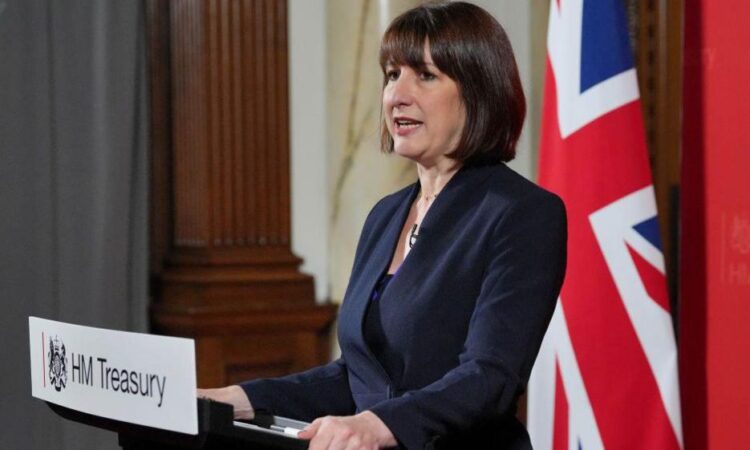
Chancellor Rachel Reeves is set to announce immediate cuts worth billions of pounds to address a £20bn financial shortfall when she addresses Parliament on Monday. The planned measures are expected to include the cancellation of some road and rail projects, a reduction in spending on external consultants, and a drive to cut public sector waste.
In her address, Reeves will accuse the previous government of “covering up” shortfalls in departmental budgets and then “running away.” However, the Conservative Party has countered, claiming the chancellor’s message is designed to “con the British public” so that she can raise taxes.
A Treasury internal audit of the public finances, to be published on Monday, is expected to show a gap of around £20bn between tax revenues and expected spending. Reeves will tell Parliament that this requires “immediate action” to restore economic stability and “fix the foundations of our economy.”
Projects that could be paused or cancelled include the road tunnel under the Stonehenge World Heritage site and Boris Johnson’s New Hospital programme.
Before the election, leading economists warned that the sums did not add up and that the new government would face a stark choice between raising taxes, cutting spending, or abandoning its commitments to reduce debt in the medium term. However, the incoming government has described the situation as “catastrophic,” with extra demands on the government purse being uncovered as new ministers reviewed their departments’ accounts.
Ms. Reeves is reportedly “genuinely shocked” by some of the findings. However, she will not suggest at this stage that tax rises will be required. Instead, she will invite the Office for Budget Responsibility to assess the public finances and initiate a Spending Review to examine departmental budgets over the longer term.
Budgets or similar fiscal events will be held only once a year, with Reeves expected to set a date for her first in the autumn. Insiders suggest that if the chancellor had wanted to raise taxes, she would have held an emergency Budget this week. Instead, she is expected to restate manifesto commitments to not raise personal tax rates, including income tax.
Michael Saunders, a senior adviser at Oxford Economics, anticipates “a smaller squeeze on public spending” alongside bigger tax rises. He expects the chancellor will highlight various projects that were either unfunded or underfunded by the previous government to support her case that the public finances are worse than feared.
Reeves is also expected to announce pay rises for some public sector workers in line with the recommendations of independent pay review bodies. This would result in above-inflation settlements for teachers, members of the armed forces, and prison staff, among others. The cost of these pay rises will need to be found in the budget, weighing the cost of disruption from strikes against the need to recruit and retain staff.
Additionally, Reeves will introduce a new “Office of Value for Money” aimed at identifying and recommending savings, including in the current financial year, to prevent poor value spending.
Last week, Home Secretary Yvette Cooper revealed that the Conservatives’ plan to remove asylum seekers to Rwanda had cost taxpayers £700m, nearly double the previously disclosed amount. Other departments have also identified unmet spending needs. Environment Secretary Steve Reed stated on Sunday that the condition of flood defences was “far worse than we were led to believe.”
The Conservative Party has insisted that the state of the public finances was clear before the election. Former Tory chancellor Jeremy Hunt accused the new government of “peddling nonsense,” claiming the books showed a healthy, growing economy. Shadow transport secretary Helen Whately echoed this sentiment, stating that Labour inherited a strong economy with historically low unemployment and accused Labour of setting a narrative to justify tax increases.
NNEOMA UDENSI
Follow us on:






